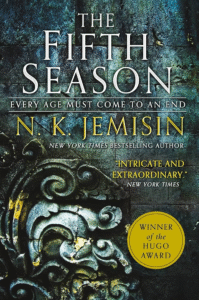The Haunting Palimpsest: Unpacking Nicola Barker’s Darkmans

In Nicola Barker’s sprawling and ambitious 2007 novel, Darkmans, the past is not merely prologue; it is a persistent, tangible presence, a ghostly palimpsest overlaying the contemporary lives of its characters. Set in the liminal spaces of Ashford, Kent – a town undergoing the disorienting churn of urban regeneration – the novel masterfully blurs the lines between history and hallucination, sanity and psychosis, exploring how unresolved trauma, both personal and collective, can fester and manifest in uncanny ways. Through its unique narrative structure and deeply unreliable perspectives, Darkmans crafts a compelling meditation on memory, identity, and the enduring power of the spectral.
The Ambiguity of the “Darkmans”
At the heart of the novel’s unsettling atmosphere is the titular “darkmans,” a medieval jester figure from Ashford’s past, whose spectral presence seems to haunt the protagonist, Daniel. Daniel, a man struggling with a debilitating skin condition and an increasingly fractured grasp on reality, finds himself plagued by visions and voices, often attributing them to this historical figure. Barker skillfully keeps the reader questioning the veracity of Daniel’s experiences. Are these genuine paranormal encounters, or are they the products of a mind unraveling under the weight of illness, medication, and psychological distress? This ambiguity is crucial to the novel’s power, forcing us to confront the possibility that the “ghosts” we perceive might be reflections of our own inner turmoil, projections of unaddressed fears and anxieties.
The Haunting Landscape of Ashford
Barker’s exploration of the past is not limited to individual psychological states; it extends to the very fabric of the landscape and community. Ashford, with its layers of historical change and its ongoing struggle for a new identity, becomes a character in itself. The ancient ruins and modern developments sit side-by-side, creating a sense of temporal dissonance that mirrors the characters’ internal struggles. The “darkmans” is not just a personal haunting for Daniel; he embodies the unacknowledged historical weight of the town, the forgotten stories and suppressed energies that refuse to stay buried. This communal haunting suggests that the past, particularly the more violent or uncomfortable aspects of it, leaves an indelible mark on a place and its inhabitants, subtly influencing their present-day experiences.
Fragmented Narratives and Unreliable Realities
The novel’s fragmented narrative, shifting perspectives, and often disorienting prose further contribute to its thematic concerns. Barker employs a stream-of-consciousness style, particularly with Daniel, that mirrors his fractured mental state. The reader is plunged into his subjective reality, experiencing his hallucinations and delusions alongside him. This narrative choice, while challenging at times, is essential to the novel’s immersive quality, blurring the line between objective truth and subjective experience. It forces the reader to actively engage with the text, piecing together fragments of information and constructing their own interpretations of the unfolding events, much like the characters themselves are attempting to make sense of their confusing realities.
The Weight of Personal History
Furthermore, Darkmans delves into the complexities of human connection amidst this disorienting backdrop. Daniel’s relationships, particularly with his family and his former girlfriend, are strained and distorted by his deteriorating mental health. The novel subtly explores how shared history, whether through familial bonds or past relationships, can also become a form of haunting, with unspoken resentments and unresolved conflicts surfacing in unexpected ways. The characters are perpetually grappling with their own personal histories, trying to escape or reconcile with the events that have shaped them.
In conclusion, Nicola Barker’s Darkmans is a profoundly unsettling and intellectually stimulating novel that defies easy categorization. It is a ghost story that questions the very nature of ghosts, a psychological drama that blurs the line between illness and the supernatural, and a historical novel that examines the enduring power of the past on the present. Through its innovative narrative techniques and its courageous exploration of unreliable perception, Darkmans leaves a lasting impression, prompting readers to consider how deeply intertwined our personal and collective histories are, and how the unquiet dead – both literal and metaphorical – continue to shape the contours of our lives.




















